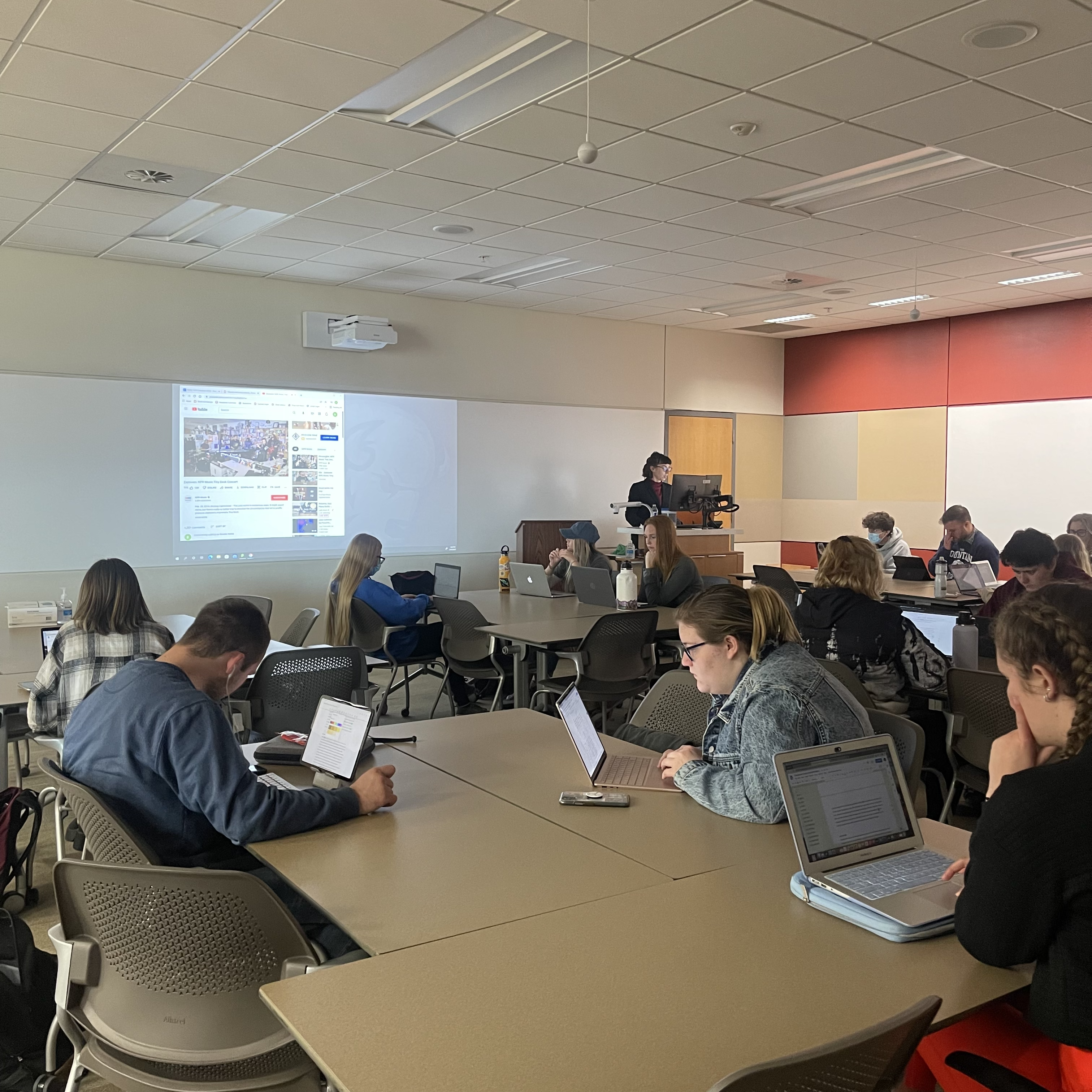Class size matters to help students achieve academic success and confidence in the classroom.
Being in a classroom of 40, or even 80, other students is very intimidating. Maybe you feel dumb or shy when asking a question in front of this many students. These are all things that should be considered when a university is structuring its class schedules and admitting students.
Smaller class sizes allow for one-on-one interaction with your professor and getting more help to better understand what you are learning.
According to Schools, “The potential benefits from a more familiar relationship with your professors are numerous: future research opportunities, recommendation letters, and less competition for office hours are just some of them.”
At Dixie State University I have had personal experiences with large and small class sizes. Large classes are more common in general education classes.
I knew being in a smaller class has more advantages because of my interest in and grade in my small math class. I took this math class once before in a large class size. Upon starting the small math class I immediately knew I could not and would not miss a class. I also never passed a math exam in the larger class. In contrast, I have already understood way more in the smaller class than in the larger class.
A university may not hire more staff or faculty but admit too many students, which would result in overflowing or large class sizes.
As stated by CollegeRaptor, “This leads to a situation where there is no other choice than a professor to teach a class of 400 students that all need the class to graduate.”
Students pay thousands of dollars to attend a university where they are expected to consume information. The outcome should get them ready for the real world and their career. But what if a class is too big to feel like you are getting something out of it?
I constantly felt like being in a larger class caused me to fall behind. I was afraid to admit I did not understand the content and did not get what I needed out of the class. The professor was too concerned with being on par with the course calendar than actually making sure all 45 of her students were understanding the content being taught.
According to Inside Higher Ed, “A class size between 31 and 40 may well be the maximum limit before an instructor is forced to incorporate more time-saving, but less academically meaningful assignments to the detriment of student learning and, ultimately, student achievement.”
Small class sizes have helped both in academic success and providing an influential learning environment.
It is hard to keep track of numerous students. Most professors teach multiple classes with many students in each. With that said, they do not have time to make sure all students come to class or stay in class. Professors could make attendance mandatory, but students still do not show up.
CollegeRaptor also said: “You can slip in and out the back doors hardly noticed. If you don’t attend, your professor may never know, and there are no penalties. It is much harder to have the nerve to walk out of a class of 20 students.”
Being in a large class, and in college in general, comes great responsibility. It is easier to miss class when there are more students in the class. Professors are less likely to comment on your absence if they are in charge of a huge class rather than if there were 20 students in the class.
A large class size takes away the productivity and time spent to assure students’ comprehension of a professor’s subject. A class of 50 or more students results in not enough resources for professors to check on each student to ensure they are getting the proper learning they deserve.
Smaller class sizes allow students and professors to be more engaging throughout a semester rather than feeling ignored. Having a more appealing class with an involved professor can result in academic and personal success in and outside of the classroom.



